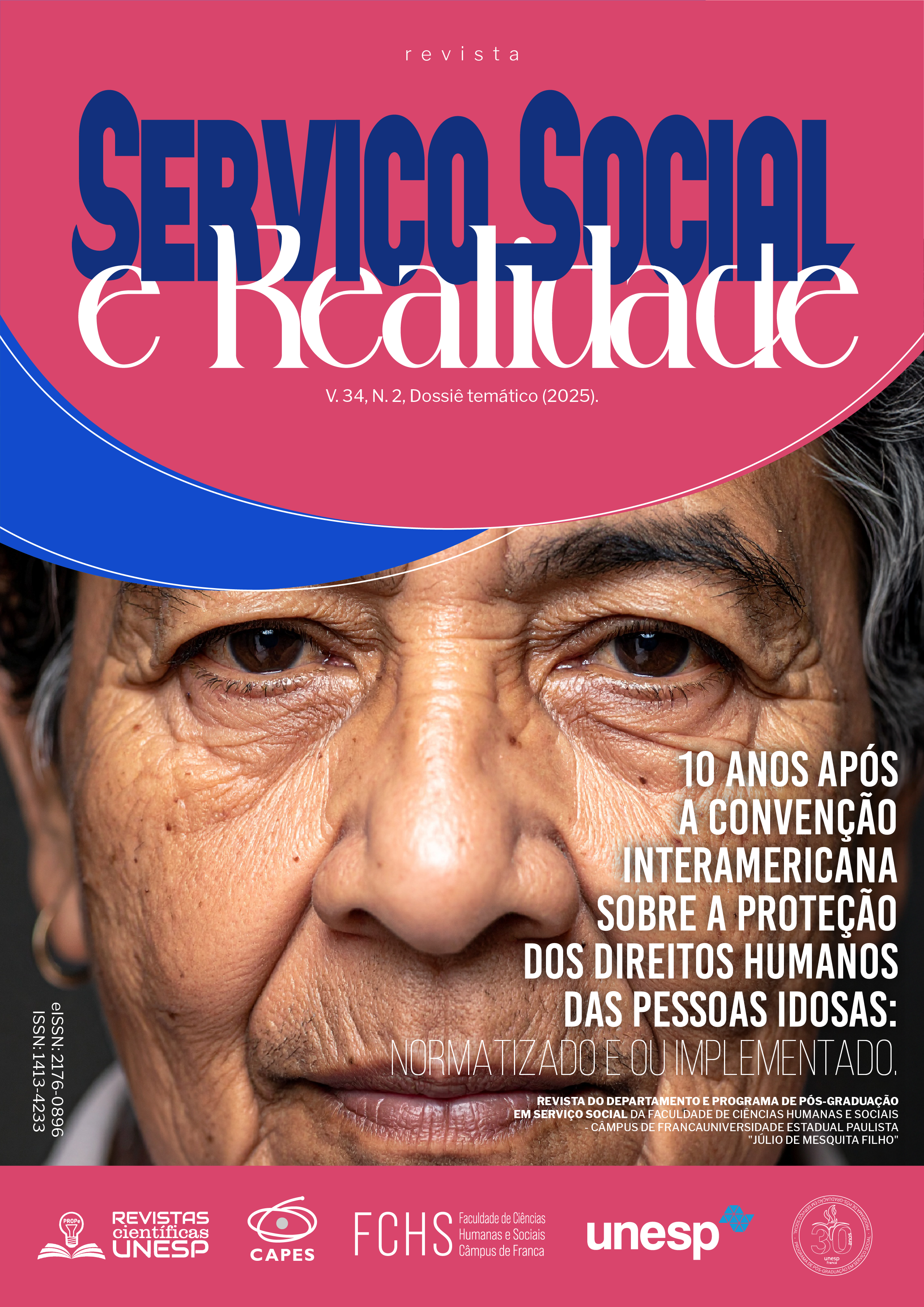Vol. 34 No. 2 (2025): DOSSIER: 10 years after the Inter-American Convention on the Protection of the Human Rights of Older Persons: Standardised and/or Implemented?

This thematic dossier consolidates the reflections and debates from the V International Congress on Active Ageing (2025). It aims to assess, a decade after the Inter-American Convention, whether the human rights of older persons have been effectively standardised into norms and implemented. It seeks to ground and instrumentalise public policy interventions, strengthening the commitment to a dignified old age for the working class.
This publication is the result of an international congress held at UNESP, which brought together academics, professionals, and students to discuss ageing in a context of widening social inequalities, the advance of neoconservatism, and a neoliberal offensive against social rights. The dossier aligns with the critical perspective of Social Work, understanding ageing as a social and historical phenomenon, not merely a biological one.
The reader will find a collection of articles reflecting the main trends and critical concerns in the field of ageing studies, organised around the following axes:
-
Analyses of the commodification of care, the precarisation of public policies, and the overload on female caregivers.
-
Discussions articulating class, race, gender, and generation to explain inequalities in ageing.
-
Investigations into obstacles in accessing Long-Term Care Institutions (ILPIs), mental health services, social security, education, and social assistance.
-
Advocacy for legal-social literacy and education as tools for guaranteeing rights and autonomy.
-
Analyses contrasting the realities of ageing in Brazil, Mozambique, Spain, and Cuba.
Through 11 articles synthesising research from national and international institutions, this dossier constitutes a tool for resistance and struggle, reinforcing the commitment to guaranteeing the rights and dignity of the elderly population, particularly the working class. The work invites critical reading and the appropriation of its content to ground qualified professional interventions and strengthen the fight for a truly dignified old age for all.

